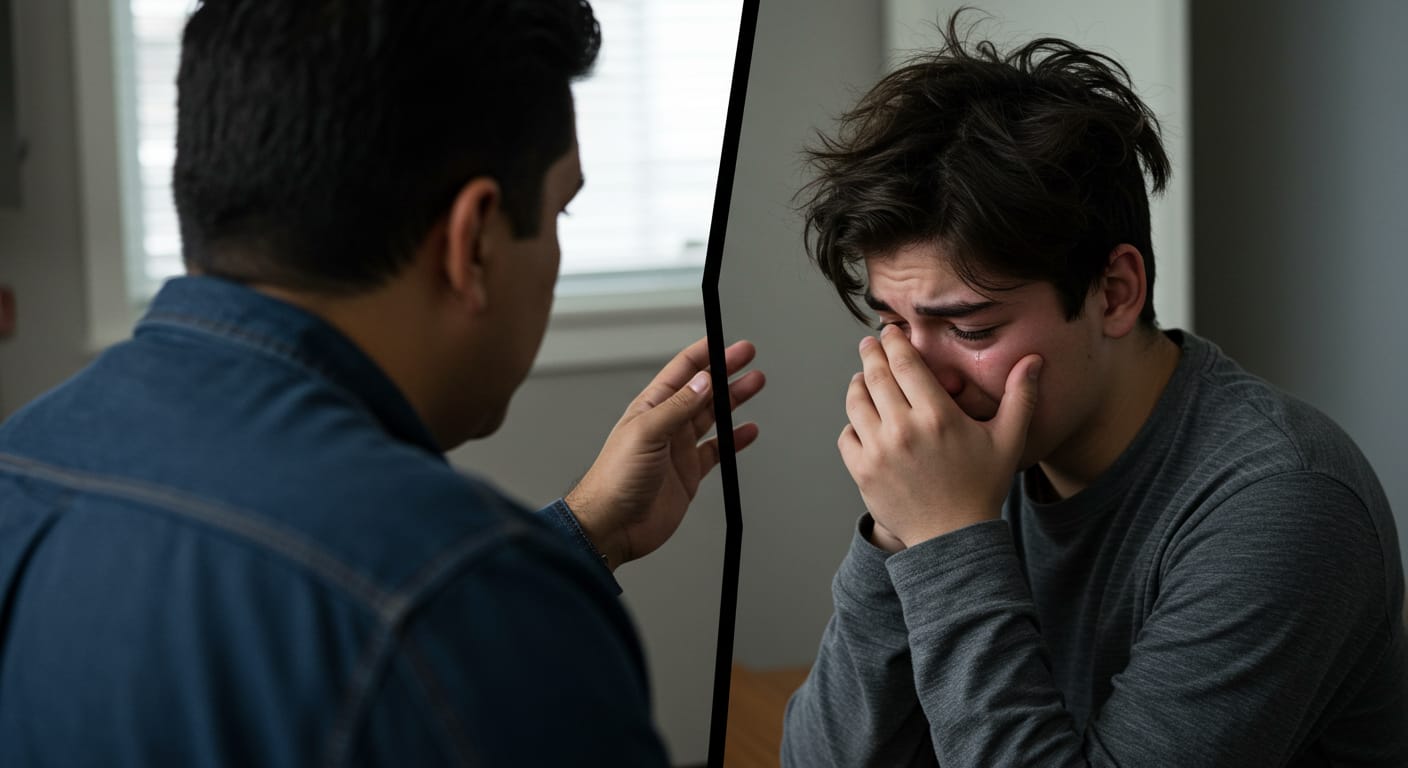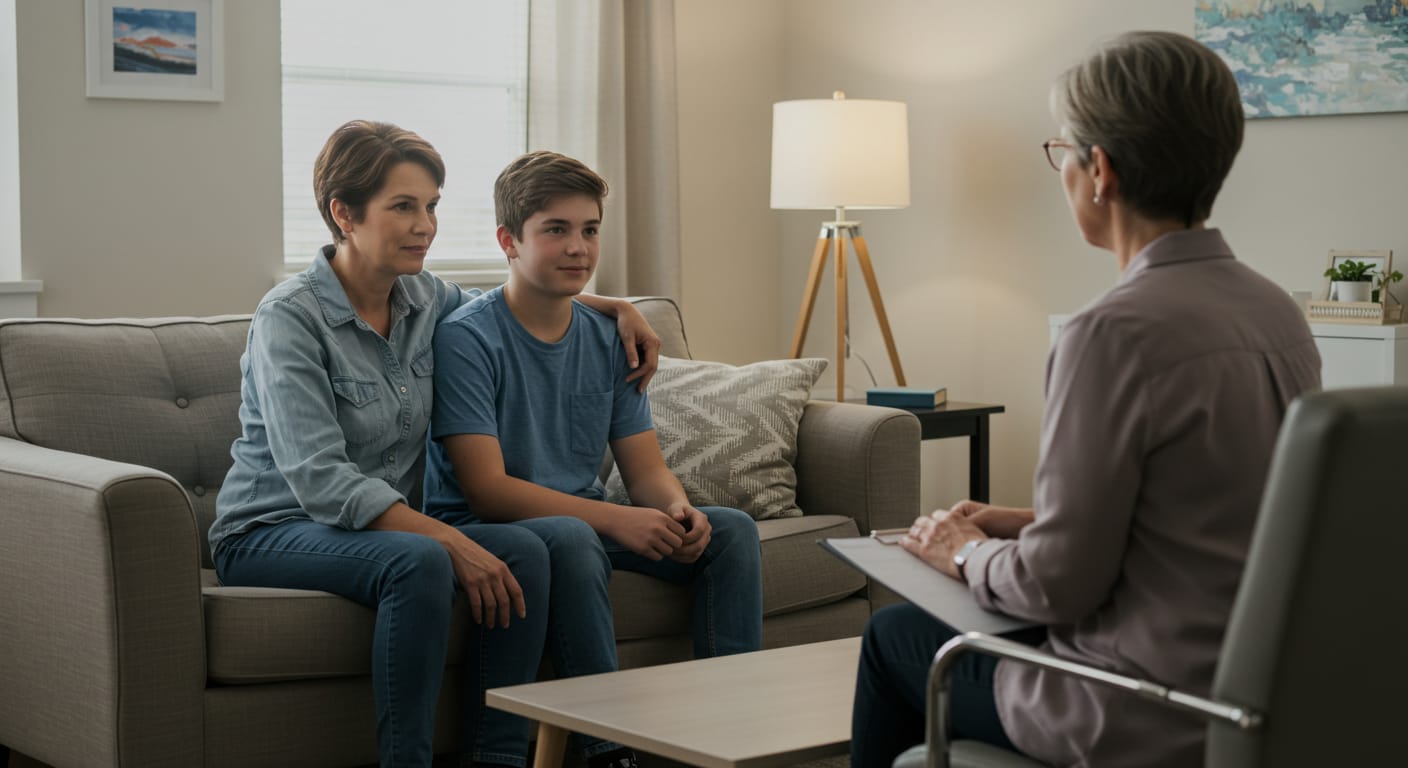Denial
Parents, ignoring mental illness in your child can have serious consequences. Yes, I’m starting strong with this one—but stay with me. It’s tempting to believe or assume that your child is okay, especially when the signs are subtle. Mental illness often doesn’t present like a broken arm or asthma attack—it hides in behaviors, habits, and mood changes. That’s why it’s so easily missed.
Are You in Denial?
Your child might start isolating, showing mood swings, using dark humor, or creating disturbing art. While none of these signs alone mean depression, they may be cries for help. Teens often don’t know how to express what’s wrong—or fear being judged. So they hide it. They mask. And parents miss it.
Happy on the Outside, Hurting Inside
Some teens seem fine—they laugh, go out, do chores. But underneath? Masking pain. They may smile because they’ve learned they “should.” But inside, they’re drowning. This is why assuming “they look okay” is not enough. Listen closely. Watch gently. Care deeply.
The Weight of Stigma
Sometimes, parents avoid accepting mental illness due to stigma. It’s scary. You don’t want to believe your child could be hurting. But that denial may cause you to dismiss important signs—leaving your child alone in their silent battle. And silence can be deadly.
Small Signs Are Still Signs
Your child might be showing small clues: sleeping too much, irritability, loss of interest, or saying things like “I’m just tired of everything.” Don’t overlook these signs. Kids don’t always know how to say “I’m not okay.” But their behavior will.
Dismissal Feels Like Rejection
When parents dismiss mental health signs, it may send the message: “Your feelings don’t matter.” That thought alone can deepen the teen’s pain. When your child thinks you don’t care, they retreat further. Mental illness grows stronger in isolation and silence.
What Happens If It’s Ignored?
Unchecked mental illness in teens can lead to academic failure, addiction, risky behavior, and suicidal ideation. You are their first line of defense. Ignoring signs doesn’t make them disappear—it only delays healing, and in some cases, it makes things worse.
Validate First, Fix Later
Even if your child isn’t diagnosed, the most empowering thing you can do is validate their emotions. Say: “I believe you. I’m here for you.” Not every emotional shift is a disorder, but when you listen, you build trust. When you dismiss, you break it.
🛑 Don’t Just ‘Send Them to Therapy’
Therapy is powerful—but it’s not a handoff. Be involved. Ask your child and the professional how you can help. Don’t be stifling, but be present. You and your child are a team. Therapy is support—not abandonment.
It’s Okay to Be Scared—But Don’t Ignore
Yes, this is scary. Depression is complex. But your child needs you more than ever. The silence you break now could be the voice that saves them. They don’t need you to fix it all. They need you to believe them, walk with them, and not give up.











